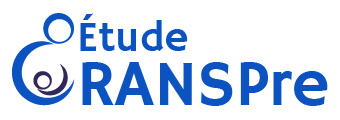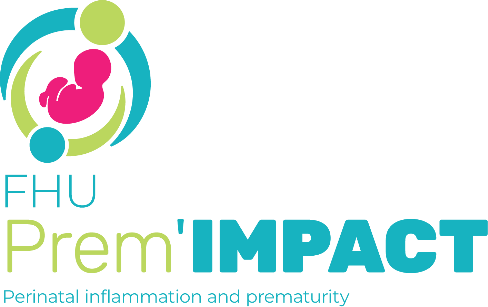
Coordinating Investigator :
Vassilis Tsatsaris :Maternité de Port Royal, Hôpital Cochin AP-HP – Paris
Scientific Director:
Catherine DENEUX : INSERM Equipe EPOPé, Centre de recherche en Epidémiologie et Statistiques CRESS, Paris
IMPACT OF FIRST-TRIMESTER PREECLAMPSIA SCREENING ON PERINATAL AND MATERNAL MORBIDITY. A MULTICENTER RANDOMIZED TRIAL
Scientific justification
| The RANSPRE study is the first trial to test the impact on perinatal and maternal health outcomes of a screening procedure for preeclampsia in the first trimester of pregnancy combined with aspirin treatment for pregnant women screened at risk. A medico-economic evaluation will also be carried out, enabling a cost-effectiveness analysis. The results of this study will provide essential information relevant to the French healthcare system, which will guide the development of policies to prevent preeclampsia (PE) in the general population of pregnant women. If the results show a benefit, they will provide further solid evidence for the dissemination in routine care of this screening with a demonstrated health benefit. If they show no benefit, or an iatrogenic impact and high costs, this will constitute important knowledge that will prevent the spread of a potentially deleterious practice. |
Main objectives
Principal objective:To evaluate the impact of first-trimester PE screening (FTPS) on the incidence of severe perinatal morbidity.
Secondary objectives :
- To evaluate the impact of first-trimester PE screening (FTPS) on:
- the incidence of preeclampsia
- the incidence of components of moderate and severe maternal morbidity
- the incidence of components of moderate and severe perinatal morbidity
- To evaluate the impact of first-trimester PE screening (FTPS) on potential adverse events:
- iatrogenicity
- over-medicalization
- women’s satisfaction and anxiety status
- To evaluate the economic impact of first-trimester PE screening (FTPS) on costs.
Design of the study
Multicenter randomized controlled open-label trial with 2 parallel groups (ratio 1:1), with or without screening for PE in the first trimester of pregnancy.
Population of study participants
Pregnant women between 11 et 14 SA.
Interventions or product under investigation
First-trimester screening of PE (FTPS): an algorithm developed by the FMF and based on maternal characteristics, uterine Doppler parameters, and PlGF concentration calculates a risk of PE. For women with a positive screening test (i.e. predicted risk >1/100), a treatment with aspirin will be prescribed at 160 mg/day, started as soon as possible and before 15 WG and taken up to 36 WG.
Comparator arm
No first-trimester PE screening. Women will benefit from usual care according to French recommendations (CNGOF and SFHTA national guidelines).
Expected benefits for the participants and for society
| Several manufacturers are currently offering screening for PE in the first trimester of pregnancy using the FMF algorithm. While this screening is not recommended by authorities, and its risk-benefit balance is not well established, an increasing number of maternity wards, including in France, seem to integrate it into their routine practices, potentially exposing a large number of women to an unnecessary, potentially harmful, and costly procedure. If the health benefit of screening of PE is demonstrated, the implementation of this screening strategy will reduce perinatal complications related to PE, particularly prematurity, and their associated costs. PE is also associated with long-term maternal complications (cardiovascular disease, kidney failure). Effective prevention of this disease could also reduce these complications in the long term. In addition, beyond the benefit for health, the RANSPRE trial will also assess the potential obstacles to the practical implementation of this strategy in early pregnancy, in particular regarding uterine Doppler, and the cost of this screening strategy in the French context, all elements needed to design a relevant screening policy. Conversely, demonstration of the lack of health benefit of this screening strategy will be a strong argument against the deployment of this strategy, thus avoiding exposing pregnant women to the potential iatrogenic risks of screening and treatment, in particular in those screened at risk, notably additional unjustified examinations and interventions, and stress. Such a negative result would also usefully save money by avoiding the costs of the screening test components. |
Number of participants
14 500 women
Number of centers
22 French maternity hospitals
Duration of the study
- inclusion period: 36 months
- participation period (treatment + follow-up): 7 months
Mean number of enrolments expected per site and per month
29 enrolments per site and per month
Sponsor : AP-HP
Funding sources : National PHRC 2020
Progress report
The study began on March 6th, 2023.
As of March 31st, 2025, 22 centers are active and 8761 patients have been included in the study.
